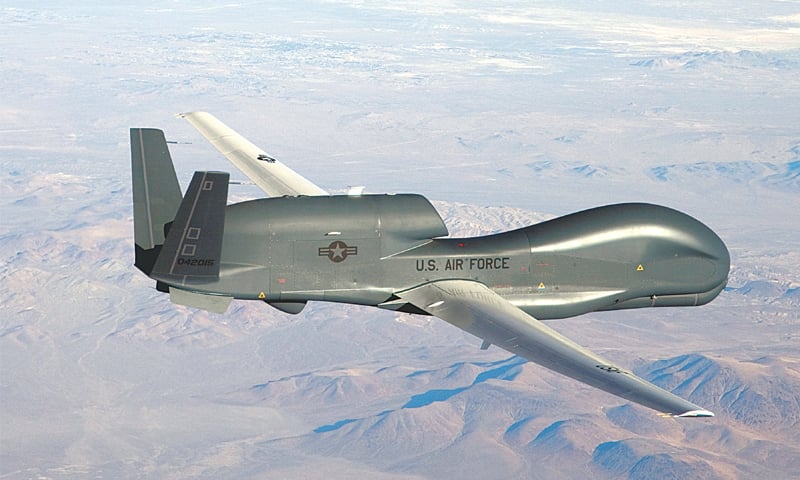WASHINGTON: Iranian forces shot down a US surveillance drone on Thursday for allegedly violating Iran’s airspace, an incident that brought the two countries closer to an open conflict in the world’s busiest oil shipping lane.
The Islamic Revolutionary Guard Corps said it had brought down the unmanned Global Hawk surveillance aircraft as it was “violating Iranian airspace” over the waters of Hormozgan province.
President Donald Trump told Iran it had made a “big mistake” by shooting down the unmanned aircraft.
Trump says Iran has made a ‘big mistake’
“They made a very big mistake,” Trump told reporters at the White House following the strike near the strategic Strait of Hormuz. “This country will not stand for it, that I can tell you,” he said.
However, President Trump tried to tamp down tensions, saying late in the night he suspected it was shot by mistake and that “it would have made a big difference” to him if the remotely controlled aircraft had been piloted.
The comments appeared to suggest Trump was not eager to escalate the latest in a series of incidents with Iran.
The Pentagon denounced an “unprovoked attack” in international air space, claiming the drone was some 34 kilometres from the nearest point in Iran when it was downed by a surface-to-air missile.
Iran vowed in response to go to the United Nations to prove Washington was “lying”. Crude oil prices rose more than six per cent after the incident which marked a new peak in tensions as Tehran pushes back against surging US diplomatic, economic and military pressure.
Trump has repeatedly said he does not favor war with Iran unless it is to stop the country getting a nuclear weapon — something Iranian leaders insist they are not pursuing. But critics of the Trump administration say that his policy of “maximum pressure” — including crippling economic sanctions, abandonment of a complex international deal to regulate Iran’s nuclear activities, and deployment of extra sea, air and land forces to the region — make war ever more likely.
Tehran denies having been behind the attacks but has frequently threatened in the past to block the sea lanes used by shipping to move much of the world’s oil exports.
A key Republican ally of Trump, Senator Lindsey Graham, said the president’s “options are running out”. Asked if he believed the countries were edging closer to war, he replied: “I think anybody would believe that we’re one step closer. They shot down an American asset well within international waters”. One of Trump’s biggest opponents, the Democratic speaker of the House of Representatives, Nancy Pelosi, warned that “there’s no appetite for wanting to go to war in our country”.
Published in Dawn, June 21st, 2019
















































Dear visitor, the comments section is undergoing an overhaul and will return soon.